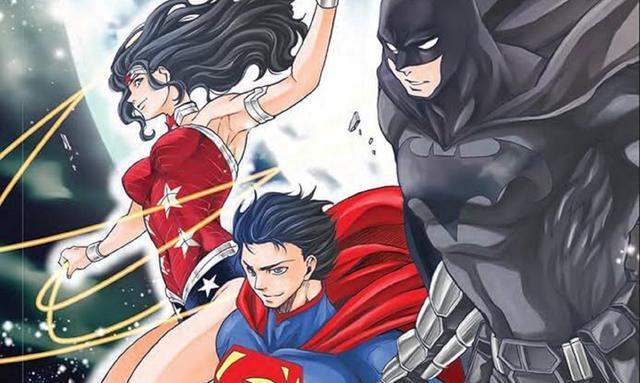If you click on a link and make a purchase we may receive a small commission. Read our editorial policy.
Squid Game, Hunger Games, The Running Man - Why are death game shows so popular? One psychotherapist has an answer
Alienation, social media, and horrible "internet celebrities" all might have contributed to Squid Game season 3's record-breaking debut on Netflix. If Jordan Conrad is right, at least

Popverse's top stories
- "And my axe!" Lord of the Rings star John Rhys Davies says there's one world leader who deserves Gimli's iconic weapon
- Walton Goggins promises something “profound” in the Fallout season 2 ending
- Dispatch Switch censorship may be driven by Japan and AdHoc's resource limits — not Nintendo
It sure does seem like everybody's playing life-or-death game shows. Just this week, Edgar Wright's The Running Man trailer introduced us to a man who enters a televised death-race for a chance at a better life, and over on Netflix, the Squid Game cast are doing much the same thing as season 3 debuts. And need we remind you that another Hunger Game prequel is on the way for 2026?
Don't get us wrong; we're not complaining about excellent fiction. But it does have us (and maybe you too, dear reader) pondering to ourselves - just why the hell is the 'death game' genre so popular these days?
Newsweek had the same question.
In order to answer it, the outlet recently spoke to psychotherapist Jordan Conrad, founder of Madison Park Psychotherapy. Conrad admits that, on the surface, the popularity of media like Squid Game might be due to, "some intrinsic attraction to violence at play," but also believes there's a deeper reason for the genre being in vogue.
"Perhaps the larger component drawing audiences to the 'death game show' genre," Conrad says, "is the increasing sense of alienation felt by so many people."
That alienation, Conrad expounds, amounts to the feeling of being judged by our data; for many, their sense of worth boils down to the numbers they can produce on social media. Almost like, well, a score.
"Our social interactions are increasingly mediated by programs that we know are surveilling us," continues the psychotherapist, who is also a published Oxford philosopher, "Our romantic lives have been taken over by apps, and stable features of the 'good life' feel ever out of reach for the average person," Conrad said. "The sum total of this is that our lives feel commodified—the most-important thing about us is our data."
Beyond the internal reasons for the genre's current popularity, Conrad sees an external cause for audiences' current fascination with deadly competitions. That is, that the degrading acts we see on our favorite streaming platforms are mirrored by real ones we see on social media.
"Many prominent internet 'celebrities,'" Conrad concludes, "Have become famous for doing awful things—spraying vegetables in supermarkets with poisonous chemicals; licking ice-cream in the store and putting it back; giving unhoused people Oreos filled with toothpaste [...] These are also the behaviors we see in the 'death game show' genre—people enhancing or maintaining their position by getting others, often vulnerable people, to perform degrading and dangerous tasks for the camera."
Oof, that's a pretty bleak (if extremely plausible) take on the whole thing, Jordan. I guess we'll just take solace in the fact that, in our real world, evil corporations aren't making money off of people competing in the Squid Game challenges.
Oh. Wait.
Squid Game season 3 is on Netflix now. The Running Man comes to theaters November 7.
Fade to credits, then a pop-up of what to watch read next - just like Netflix:
Follow Popverse for upcoming event coverage and news
Find out how we conduct our review by reading our review policy
Let Popverse be your tour guide through the wilderness of pop culture
Sign in and let us help you find your new favorite thing.
















Comments
Want to join the discussion? Please activate your account first.
Visit Reedpop ID if you need to resend the confirmation email.